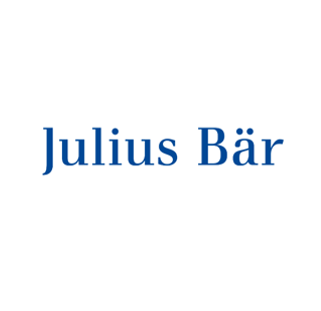Surveys
New York Is World's Eighth Most Expensive City, Singapore Top

The "Julius Baer Global Wealth & Lifestyle Report 2025" was published yesterday at a turning point for the global economy. Against a backdrop of slowing global consumption, rising geopolitical tensions, and impending trade disputes, high net worth individuals are adapting their priorities, while changes in city rankings have been noted.
New York held its position as the highest-ranked city in the Americas in terms of the expense of living there for high net worth individuals, and eighth globally, according to the Julius Baer Global Wealth & Lifestyle Report 2025. Globally, Singapore is the most expensive, with London in second spot.
Miami climbed two places to 13th with São Paulo and Mexico City both dropping down the rankings, the report reveals. While average prices for goods in dollar terms declined across the Americas, the region saw some of the highest increases in business class flights (+39.3 per cent) and hotel suites (+17.5 per cent). These increases have significantly raised the cost of travel and hospitality, which is now 41 per cent more expensive than the global average, the firm said. Notably, local currency price increases were much sharper in Latin America, where Mexico City and Santiago experienced rises of up to 16 per cent and 15 per cent respectively.
Global findings
London overtook Hong Kong to become the world’s second most
expensive city for high net worth individuals, while Singapore
retained its number one position. London also has the
potential to take the number one position next year.
The shift reflects relative currency stability, with
sterling holding firmer than the euro, Swiss franc, and dollar,
as well as rising costs in key categories. London saw a 27 per
cent year-on-year increase in private school fees and a 30 per
cent surge in business-class airfares, the report shows. Despite
this, the UK continues to be seen as a global center of academic
excellence. The report highlights the enduring draw of
institutions like Oxford and Cambridge, particularly as US
universities face difficulties under US President Donald Trump's
administration.
EMEA cities featured prominently in the rankings, representing more than half of the global top 10, with Monaco and Zurich both moving up one position to fourth and fifth respectively. Dubai rose five places to seventh, consolidating its position as a serious contender among traditional wealth hubs. Milan and Frankfurt held their positions, while Paris fell slightly in the rankings. Johannesburg remained at the bottom despite some price increases, the report shows.
Price developments within EMEA have been moderate overall, with local currency prices remaining stable or even falling in cities such as Zurich. The region’s most notable price increase came in Paris, where rising travel and hospitality costs led to a 5 per cent year-on-year rise.
APAC
Singapore remains the world’s most expensive city, underscoring
APAC’s continued importance. APAC saw only slight price decreases
of 1 per cent on average across the region, making it the most
stable of all of the regions this year. When it comes to
rankings, Bangkok and Tokyo made the largest leaps, each climbing
six places to 11th and 17th respectively. Conversely,
Shanghai dropped from fourth to sixth.
Cities in Asia also recorded price reductions in areas such as men’s suits, bicycles and hotel suites. The price of technology dropped sharply in APAC, down 21.4 per cent, while business class flights rose 12.6 per cent. Spending on goods in APAC also remained high, though consumer preferences continue to evolve. The growing wealth of APAC’s HNWI population, combined with increased interest in health, wellness, and experiences, continues to shape spending patterns across the region.
Notable price developments in the index
The 2025 Index reflects diverging trends across categories. The
sharpest price drop globally was observed in technology (-22.6
per cent). By contrast, business class flights experienced the
most significant price surge (+18.2 per cent), caused by changing
airline business models, limited aircraft supply, and sustained
demand for premium travel. Private education costs rose sharply
as well (+5.1 per cent), particularly in London following the UK
government’s VAT charges on private school fees. Watches saw an
increase of 5.6 per cent, reflecting continued demand for rare,
investment-grade models.
Lifestyle survey findings
The Julius Baer lifestyle survey reveals shifts in the attitudes
and behaviors of HNWIs worldwide. Amid growing geopolitical
tensions and economic uncertainty, affluent individuals are
increasingly balancing the desire to enjoy life today with
long-term planning for the future.
A key finding this year is the near-universal focus on longevity. Between 87 per cent (North America) and 100 per cent (APAC) of respondents report actively taking steps to extend their lifespan – from adopting healthier lifestyles to exploring cutting-edge interventions such as gene therapy and cryogenic treatments. Simultaneously, financial longevity has become an equally critical concern, with the majority of respondents indicating that they would adjust their wealth strategies if faced with longer life expectancies.
Wealth creation remains the top priority globally, but wealth preservation has gained importance, especially in Europe and North America where a more conservative investment approach prevails. In contrast, HNWIs in APAC, the Middle East, and Latin America continue to embrace higher risk levels and diversify portfolios in line with personal values and emerging global trends.
Overall, Julius Baer's report confirms the continuous shift from material consumption toward experiences. While spending on luxury goods has softened, demand for fine dining, exclusive travel, and curated experiences remains robust. This reflects a broader evolution in how HNWIs define luxury – focusing increasingly on lifestyle, wellbeing, and meaningful experiences over possessions.